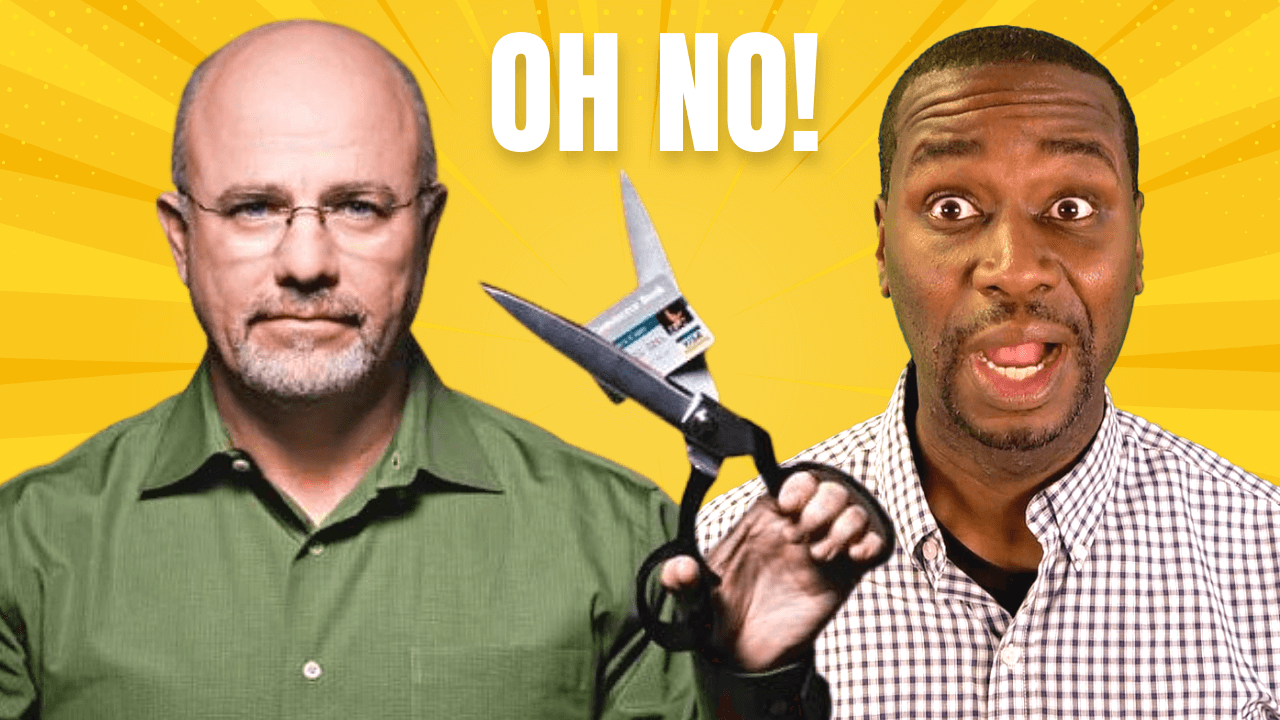Let's Talk Dave Ramsey.
Many people know and follow Dave Ramsey and his financial advice. A lot of it is centered around being frugal and paying off debt... but is that really the right approach for you?
Let's take a look at five of Dave Ramsey's most popular financial literacy tips and break them down and see if they make sense for your own finances.
Audio Version:
You can also listen on Spotify, ApplePodcasts and Stitcher
Video Version:
1. Having An Emergency Fund
Dave Ramsey suggests having an emergency fund - and this can definitely help out in a crisis.
Think about what happens if your car breaks down. This is your main method of transportation to get to and from work. If you live in a place where walking or biking isn't feasible year round (looking at you, Michigan) this is going to severely impact your main method of making money.
This could lead to a very unfortunate snowball effect.
Having an emergency fund does make sense to me. Whether it's for an emergency or just a rainy day fund, having the peace of mind to fix a problem right away or prevent an issue from getting worse.
2. Get Out of Debt
Getting out of debt can be tricky, especially to figure out what debt it is.
Dave Ramsey focuses on getting out of consumer debt - such as credit cards that may be racked up because you weren't paying attention, or buying things without budgeting for them.
While sometimes using a credit card is necessary, we have to consider using a card for a purchase that is not essential means we are paying interest on a decision from months, or even years, ago.
3. Don't Use Credit Cards
Dave Ramsey is a big proponent of saying "don't use credit cards at all."
Now, I don't necessarily agree with not using a credit card at all, but more so about using a credit card correctly. But I do believe he suggests not using cards at all because he's seen how difficult they may be to handle responsibly.
We can compare credit card usage to drinking. There's nothing wrong with having a drink or two, but there is something very wrong with having many drinks and driving home afterward.
The consequences for using credit cards if you don't have the discipline and control are pretty finally severe as well.
On the other hand, some financial gurus suggest using a credit card for every day purchases, or have your utilities automatically paid with your credit card. This way, you can reap the benefits (points, cash back) on the card, but you pay off the balance each month so you're not paying interest on it.
Use the card, pay off the transaction right away, and collect the points or cash rebate. If you were going to buy it anyway, you might as well gain something else from the transaction.
4. Save For College
Saving for college for your kids or family members can be a huge undertaking. But even if they decide to not go to a college or university, you could consider putting money aside for your kids for later, or to even help build your own savings account.
You could also take the money you plan on saving and invest in the stock market. The market gives an average of 11-13% in returns over a five year period, so you could take that time to build a nice nest egg that can be used for any reason later on.
The big picture is to be prepared for any possible large expenses later in life, such as college, so your kids may not need to take out student loans, or take out as much to pay for college.
5. Pay Off Mortgage
On the same page as getting out of debt, paying off your mortgage can also be beneficial, but the gurus are more divided on this one.
Dave Ramsey may suggest to pay off your mortgage as soon as possible.
Some may say if you have a mortgage with a low interest rate, maybe 2-3%, that is a pretty affordable interest rate. You could keep your mortgage and invest in the stock market, as mentioned before, and possibly net 8% each year.
Of course, you can always lose money in the market - so you need to make sure you understand what you are doing to be sure you can take advantage of the return and not lose money in the process.
To Follow Or Not
With so much information available, some in agreement, some conflicting, it's hard to know what exactly you should do.
Everyone's financial situation is unique and so you definitely need to consider yours before blindly following a guru. Maybe it's not the best time for you to pay off your debts. Maybe you need to keep a credit card balance to get by. That's okay.
The important thing is to always make sure you are taking care of yourself and your family first, then possibly addressing the tips mentioned here. Create your own custom financial literacy game plan to meet your needs and finances.
